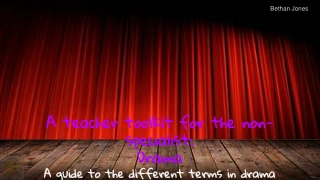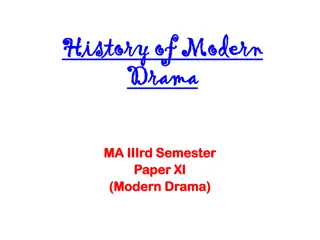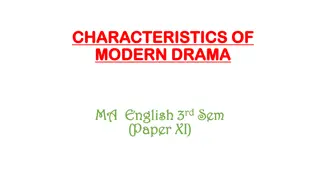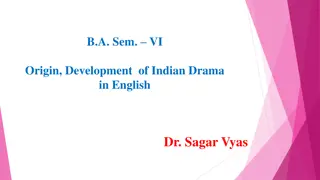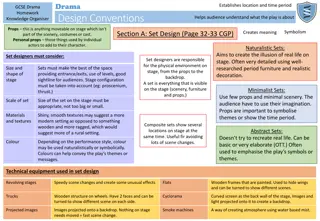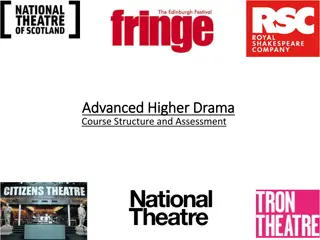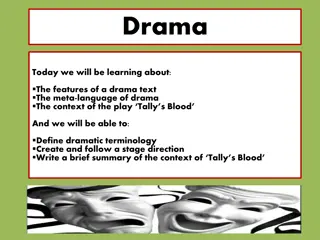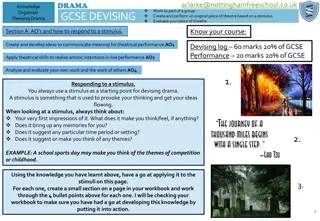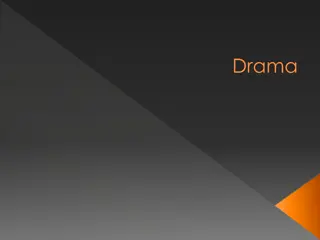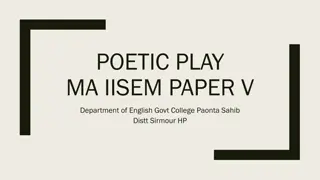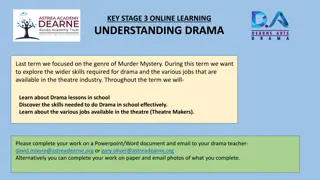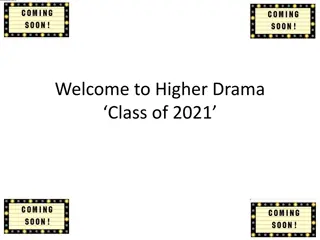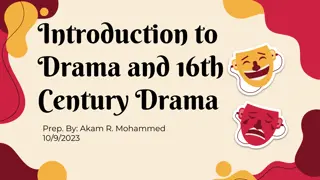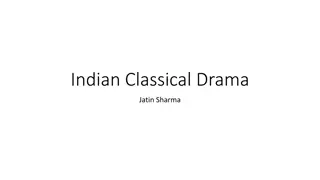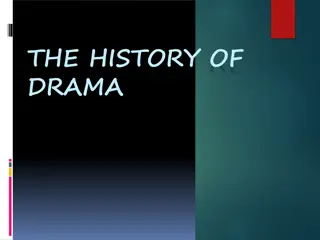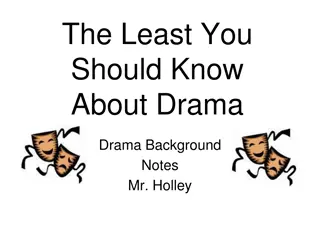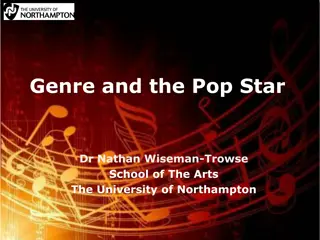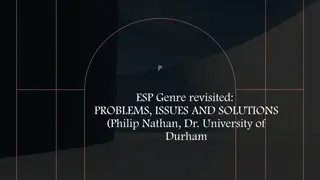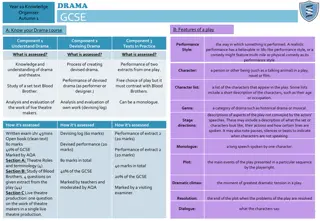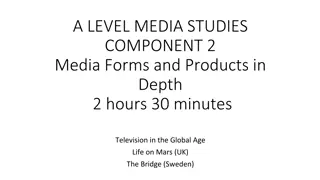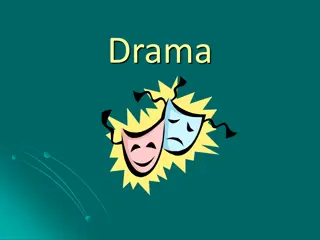Drama Form and Genre
Exploring the nuances of drama, this content delves into the intricate relationship between form and genre. Offering insights into the varied types of forms in drama such as scripted plays, physical theatre, mime, monologues, movement/dance dramas, musicals, and pantomimes, it emphasizes the flexibility and interchangeability of these terms in theatrical descriptions.
Download Presentation

Please find below an Image/Link to download the presentation.
The content on the website is provided AS IS for your information and personal use only. It may not be sold, licensed, or shared on other websites without obtaining consent from the author.If you encounter any issues during the download, it is possible that the publisher has removed the file from their server.
You are allowed to download the files provided on this website for personal or commercial use, subject to the condition that they are used lawfully. All files are the property of their respective owners.
The content on the website is provided AS IS for your information and personal use only. It may not be sold, licensed, or shared on other websites without obtaining consent from the author.
E N D
Presentation Transcript
It is important to point out that Form and Genre are hard to define. They can be interchangeable and often some of the terms can fit into both categories. You can be flexible when using these terms to describe your drama
Plot Structure F O R M Genre Character We add meat to the bones Conventions Theatre Arts
Types of Form A play, scripted or improvised Physical Theatre Mime Monologue Movement/ Dance Drama Musical Pantomime Docu-drama Forum theatre
A play Scripted This is a form of Drama where the dialogue is written down along with stage directions Improvised The plot is decided on and then actors make up what their characters will say. As there is no script the dialogue can sometimes change.
Physical Theatre Physical Theatre tells the story of the drama through an emphasised use of movement.
Mime Mime is stylised type of movement. It uses exaggerated movement to tell a story. It is performed in silence.
Monologue Monologue is when a character speaks their thoughts out loud. Instead of traditional dialogue it tells the audience what is going on in the character s head.
Movement/ Dance Drama This Form uses Movement and dance to tell the story with often little or no dialogue.
Musical This Form uses a combination of Acting, Song and Dance to help tell the story.
Pantomime Pantomime includes songs, slapstick comedy and audience participation. Often based on well known fairy tales as well as using topical humour, they often include staple characters and have a history of cross-dressing characters such as the Dame or women playing male roles such as Prince Charming
Docu-Drama A dramatized re- enactment of real events. They can often be made up of verbatim, sound or film clips of the actual events
Forum Theatre Created by Augusto Boal, Forum Theatre uses Audience Participation to discuss and explore situations and issues. It is known as the Theatre of the Oppressed and was created to help find solutions to social problems
As stated before Genre can overlap with Form and often the same terms can be used to describe both. Genre is the type of Drama you create and specific Genre often have particular conventions attached and create a certain style of performance
Tragedy Comedy Historical Tragi-Comedy Horror Types of Genre Crime Farce Satire Melodrama













